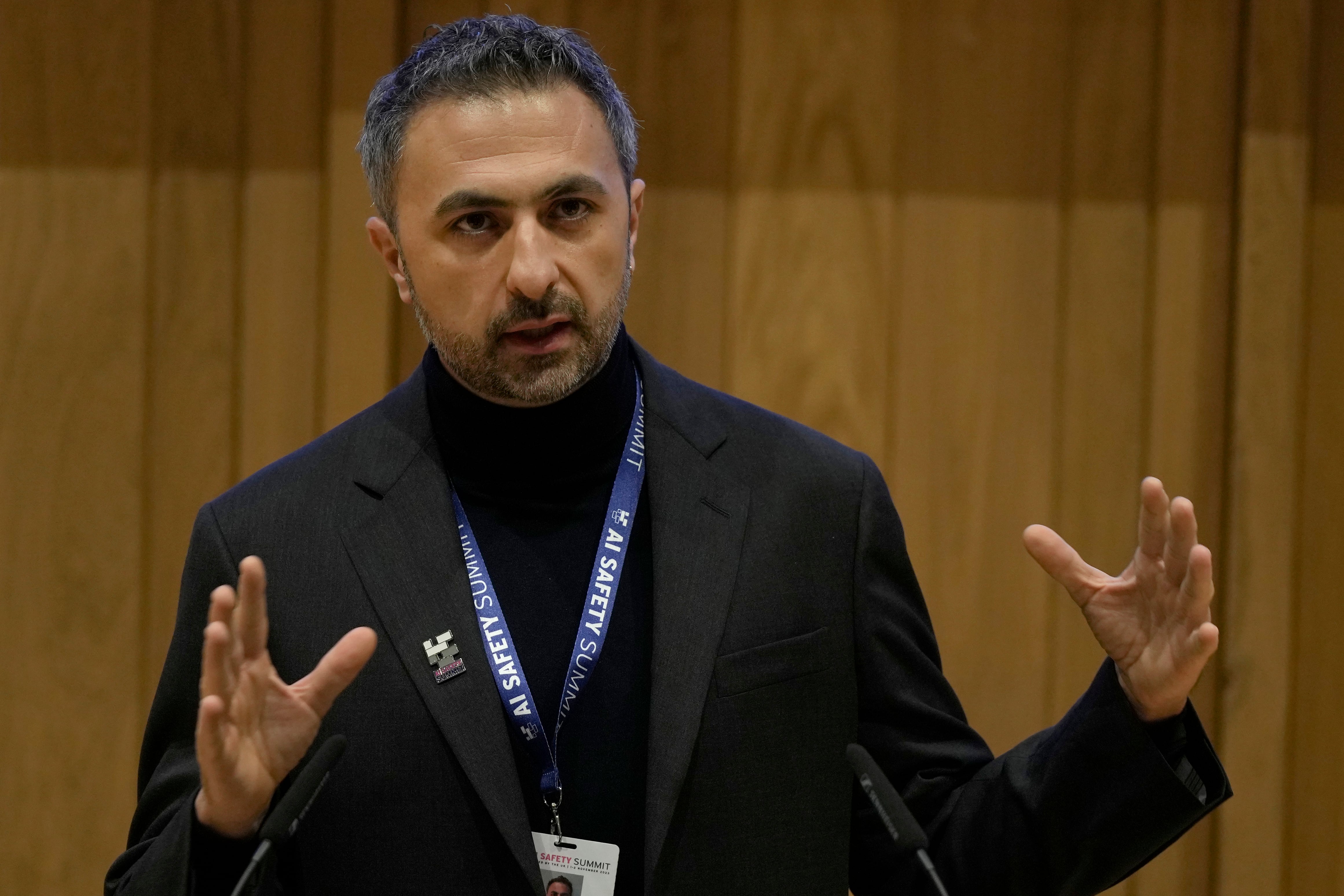LONDON (AP) — British regulators opened a preliminary investigation on Tuesday into Microsoft’s hiring of an AI startup’s key staff over concerns that it could thwart competition in the booming artificial intelligence market.
The Competition and Markets Authority said its review of the hirings from Inflection AI, including its co-founder and CEO Mustafa Suleyman, turned up “sufficient information” to open an investigation.
Microsoft hired Suleyman to head up its consumer artificial intelligence business earlier this year, and brought over several top engineers and researchers. Suleyman co-founded the AI research lab DeepMind, which is now owned by Google, before setting up Inflection and is considered an influential figure in the AI world.
The watchdog has indicated that it was assessing whether the hirings amount to a merger that results in “a substantial lessening of competition” in the U.K.'s AI market, in breach of the country's antitrust rules.
“We are confident that the hiring of talent promotes competition and should not be treated as a merger," Microsoft said in a statement. "We will provide the UK Competition and Markets Authority with the information it needs to complete its inquiries expeditiously.”
The British watchdog has until Sept. 11 to decide whether to give its approval or escalate the probe into an in-depth investigation. The authority has the power to reverse deals or impose fixes to address competition concerns.
Authorities on both sides of the Atlantic have become concerned about how the biggest technology companies are gobbling up the talent and products of innovative AI startups without formally acquiring them.
Three members of the U.S. Senate wrote last week to antitrust enforcers at the Justice Department and the Federal Trade Commission, urging them to investigate Amazon's deal with San Francisco-based Adept. The deal will result in Adept's CEO and key employees going to Amazon and giving the e-commerce giant a license to Adept’s AI systems and datasets.
The senators noted that the FTC is already looking into the Microsoft-Inflection deal and described it as “alarmingly similar to the one between Amazon and Adept, and it effectively eliminated a major competitor to OpenAI.”













